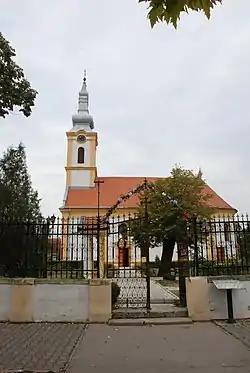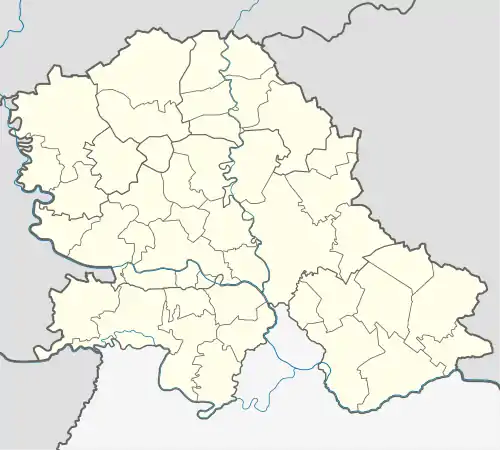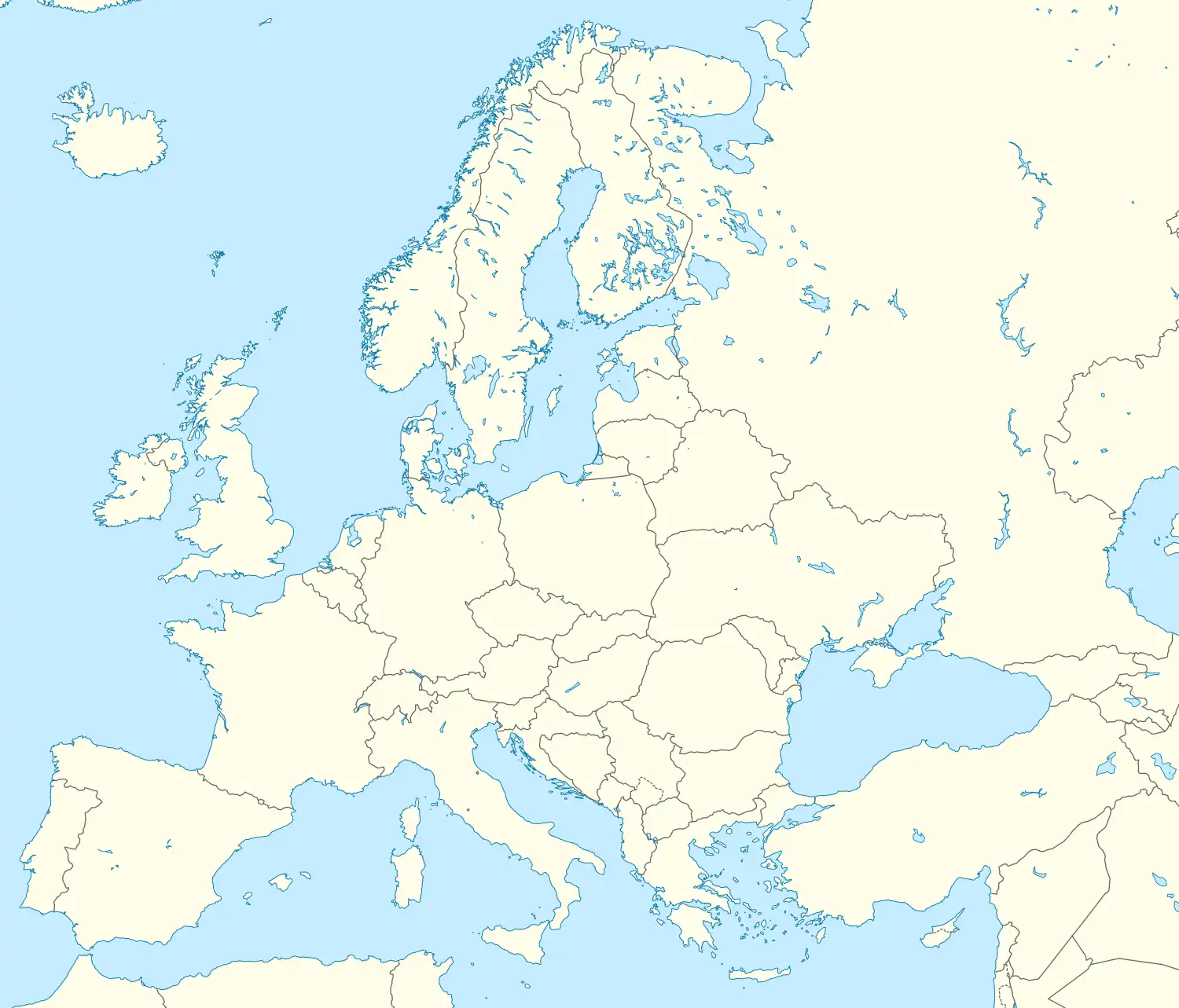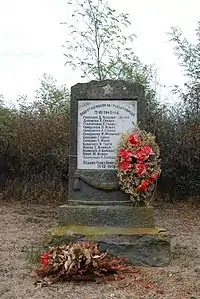Beška
Beška (Serbian Cyrillic: Бешка) is a village in Serbia. It is situated in the Autonomous Province of Vojvodina, in the region of Syrmia (Syrmia District), in Inđija municipality. The village has a Serb ethnic majority and a population numbering 6,239 people (2002 census).
Beška
| |
|---|---|
 The Orthodox church | |
 Beška  Beška  Beška | |
| Coordinates: 45°08′N 20°04′E | |
| Country | Serbia |
| Province | Vojvodina |
| District | Syrmia |
| Population (2002) | |
| • Total | 6,239 |
| Time zone | UTC+1 (CET) |
| • Summer (DST) | UTC+2 (CEST) |
History and Archeology
Roman tombs with rich decorative paintings dating back to the third or the fourth century were discovered in Beška.[1]
It was first mentioned in 1564. During Ottoman rule (16th-17th century) the village of Beška was populated by Serbs. During Habsburg rule, ethnic Germans settled there. Following World War II in Yugoslavia, the German population fled the village, while new inhabitants mostly from Croatia settled in the village in place of the Germans.
The archeological site of Kalakača includes findings of Early Bosut culture with traits of Gava culture dating to the 9th century BC.[2] The site is part of the Cultural Heritage of Serbia list, inscribed in 1995.[3]
Demographics
Ethnic groups
- 4,766 (76.39%) Serbs
- 506 (8.11%) Croats
- 208 (3.33%) Yugoslavs
- 137 (2.20%) Hungarians
- 89 (1.43%) Romani
- others.
Historical population
- 1961: 5,378
- 1971: 6,351
- 1981: 6,377
- 1991: 6,166
- 2002: 6,239
Gallery
 Beška bridge
Beška bridge City center
City center Monument to citizens killed in WW2
Monument to citizens killed in WW2
References
- Slobodan Ćurčić, Broj stanovnika Vojvodine, Novi Sad, 1996. Stanimirović i Kosovac Starćević familia Stanimirović podreklom .
- Dr. Dušan J. Popović, Srbi u Vojvodini, knjiga 1, Novi Sad, 1990.
References
- Špehar, Olga Z. (2017). "Home for Eternity. A possible Interpretation of the Late Roman Tomb Paintings from Beška". Matica Srpska Journal for Fine Arts: 13.
- "HISTORICAL PICTURE OF DEVELOPMENT OF EARLY IRON AGE IN THE SERBIAN DANUBE BASIN" (PDF).
- "Споменици културе у Србији".